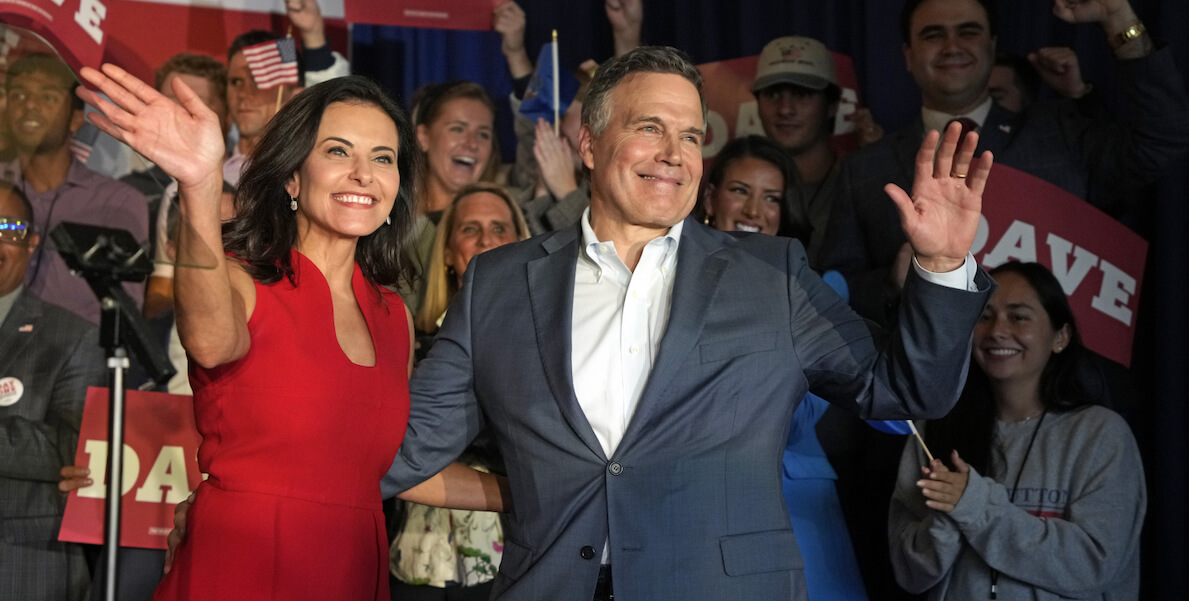Last week, Dave McCormick announced his candidacy for the U.S. Senate. McCormick is a serious person with serious policy ideas. We suspect he’ll lay out a number of substantive proposals throughout the course of his campaign.
But chances are, even if McCormick wins, and even if Republicans were to keep the House and retake the Senate and the White House, not one of McCormick’s proposed policies will become law anytime soon.
Why? Because of the toxic interaction of partisan polarization and the Senate filibuster.
Even if McCormick wins, not one of his proposed policies will become law anytime soon.
Neither party will have anything close to a supermajority in the Senate after the 2024 election. And given the intensity of partisan polarization today, the minority party is never especially willing to cooperate with the majority party. Why help give the other side a major policy win when your own voters hate those guys across the aisle and see compromise as betrayal?
Because the filibuster imposes a de facto 60-vote requirement to pass anything through the Senate (apart from the narrow 50-vote carveout for “budget reconciliation”), very little legislation has a real chance of passage. No party can command a supermajority, and there are rarely enough minority party members willing to lend a hand to help the majority reach that magic number of 60.
It doesn’t have to be this way.
In a new article in National Affairs, we make the conservative case for filibuster reform. Unlike Democrats’ proposals to scrap the filibuster wholesale, we’ve devised a reform that allows the filibuster to foster meaningful debate and deliberation without instantly sending just about every bill to the legislative graveyard.
Our proposal is simple: bills supported by a majority of senators in two successive Congresses can pass the Senate. In effect, our proposal creates two tracks for passing a bill through the Senate. Track one preserves the status quo: if a bill enjoys a 60-vote supermajority, debate can end immediately and the bill can be passed.
By opening the door to more legislation, our reform proposal could help repair the damaged feedback loop of American politics. It would help ensure that elections have real-world consequences that voters can judge as good or bad — and then vote in the next election accordingly.
Track two would provide an alternative route for passing legislation. If a bill doesn’t enjoy supermajority support but can command a bare majority, that bill need not be left for dead at the hands of the minority party’s filibuster. Instead, bills with simple majority support could be provisionally passed. They would hang in limbo until after the next election. After that election, the Senate could formally pass such provisionally passed bills by a second simple majority vote.
So, if a bill can’t clear a supermajority, it won’t automatically die; it will just have to command a simple majority twice — in two successive Congresses.
If our reform were implemented, it would give senators and citizens alike the time to consider and debate bills that are consequential yet controversial. Unlike a wholesale repeal of the filibuster, this wouldn’t allow partisans to quickly ram legislation through the Senate. If a party is trying to pass something without the other party’s support (i.e., via a simple majority as opposed to a supermajority), it will have to convince voters that it’s right. If voters agree — and thus allow the majority party to retain its power by voting for that party’s candidates in the next election — the majority party will have earned the right to do some legislating. Conversely, the voters may instead reject what the majority party has to offer by “voting the bums out.”
Higher stakes mean better democracy
By opening the door to more legislation, our reform proposal could help repair the damaged feedback loop of American politics. It would help ensure that elections have real-world consequences that voters can judge as good or bad — and then vote in the next election accordingly. In addition, our reform will help elections revolve around real issues and policies again. Instead of being about abstract grievances and issues that don’t really affect real life, elections will center on the most consequential pieces of pending Senate legislation.
Why? Because the stakes will be higher: if the majority party were to retain its power, it would have a real chance to pass laws. That’s not the case now, when our politics is more of a game — some twisted form of entertainment — than a serious business. Candidates and voters have reacted accordingly.
We know Dave McCormick doesn’t want to play this game. One of us had the privilege of interviewing him. He wants to be a legislator, not an entertainer. That’s why he’s running for a seat in the United States Senate.
If McCormick wants to be a successful legislator — if he wants to do serious work as part of a serious institution — he should support our filibuster reform proposal. And he should do so early and openly, in the hopes that his future colleagues will join him.
In his conversation with RealClear Pennsylvania this past summer, McCormick said that citizens “want credible solutions for the problems that we’re dealing with,” and that “there’s a place for that kind of leadership in American politics today.”
We agree. And that’s why we call on McCormick to support our proposal.
Thomas Harvey and Thomas Koenig are students at Harvard Law School.
The Citizen welcomes guest commentary from community members who represent that it is their own work and their own opinion based on true facts that they know firsthand.
![]() MORE ON POLITICS FROM THE CITIZEN
MORE ON POLITICS FROM THE CITIZEN



